When it comes to cooking outdoors, picking between butane and propane stoves can be confusing. Both fuels have their benefits, and knowing the differences is important for a good and safe cooking time.
I’ll examine butane and propane stoves, explaining their advantages and when you should use each. By the end, you’ll have the information you need to choose the right stove for your outdoor cooking.
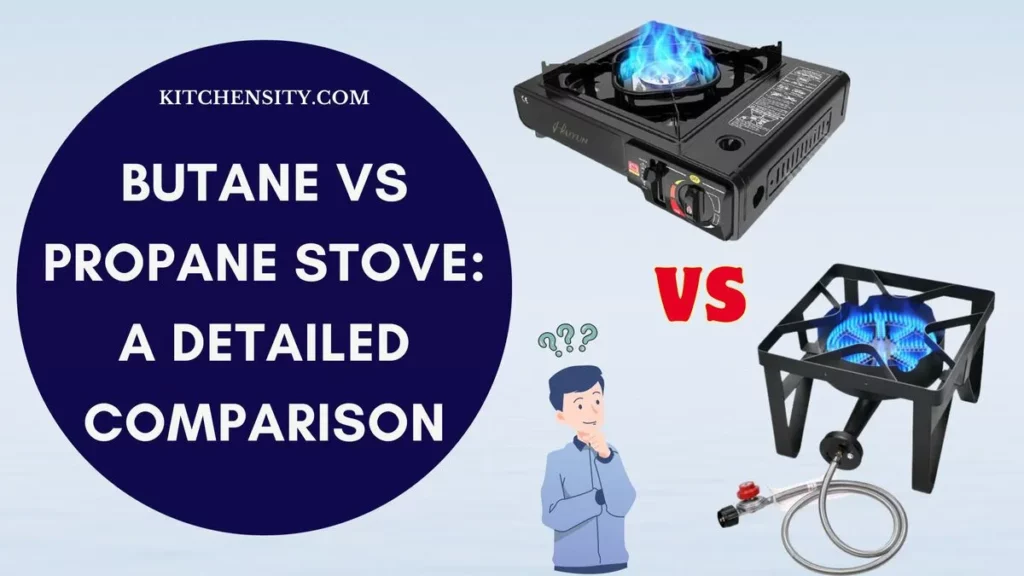
Table of Contents
- 1 What Are Butane Stoves?
- 2 What Are Propane Stoves?
- 3 Which One To Choose Between Butane And Propane Stoves?
- 4 Which Is Safer Butane Or Propane?
- 5 Comparison Of Cost Of Butane Vs Propane.
- 6 Which Stove Is Best For Camping Butane Or Propane?
- 7 Do You Need A Lighter For A Butane Stove?
- 8 Final Thoughts: Butane Vs Propane Stove
- 9 Frequently Asked Questions (FAQs)
What Are Butane Stoves?
Butane stoves are portable cooking devices that use butane gas as fuel. They are popular for outdoor activities like camping, picnicking, and backpacking. Butane stoves usually consist of a burner, a fuel source (butane canister), and sometimes a windscreen or heat reflector. They are known for their compact size, lightweight, and ease of use. Butane stoves provide a reliable heat source for cooking and are convenient for outdoor enthusiasts due to their portability and efficient performance.
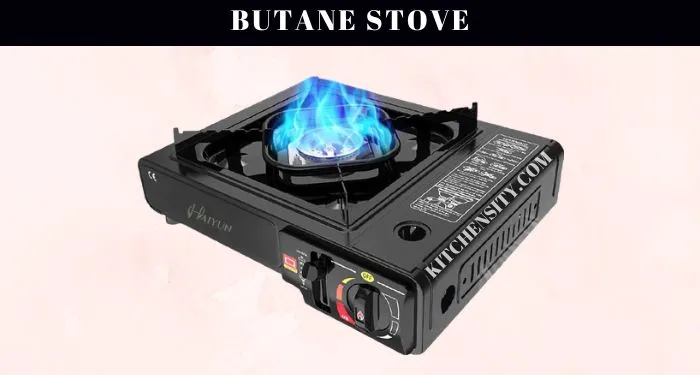
What Are The Advantages of Butane Stoves?
- Butane stoves are portable and lightweight, ideal for backpacking and camping trips.
- They are easy to use and ignite, no priming or pumping are required.
- Clean-burning fuel that produces minimal odor and soot.
- Butane stoves allow for precise flame control.
- Canisters are readily available and affordable.
- Compact design for easy storage and transportation.
What Are The Ideal Uses of Butane Stoves?
Butane stoves are ideal for outdoor enthusiasts seeking lightweight and portable cooking solutions. Their compact design makes them perfect for camping, picnicking, backpacking, and tailgating. They are easy to transport and set up, making them a convenient choice for cooking on the go. Also, butane stoves are suitable for emergency preparedness, providing a reliable cooking option during power outages or other emergencies.
Read More – What Happens If You Use Propane On A Natural Gas Stove?
What Are Propane Stoves?
Propane stoves are portable cooking devices that use propane gas as fuel. Similar to butane stoves, they are popular for outdoor activities like camping, picnicking, and tailgating. Propane stoves typically consist of a burner, a fuel source (propane canister), and sometimes a windscreen or heat reflector. They are easy to use, efficient, and provide a consistent heat source for cooking, and are also known for their power and versatility.
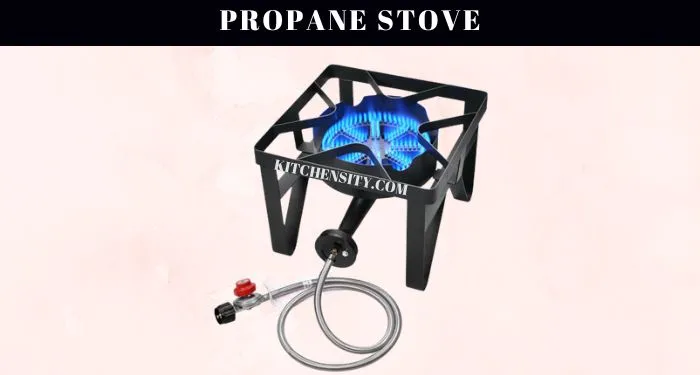
What Are The Advantages of Propane Stoves?
- Propane stoves provide a consistent heat output, even in colder temperatures.
- Versatile fuel source suitable for various outdoor activities.
- Propane stoves use larger fuel canisters than butane stoves, enabling longer cooking times.
- They are compatible with various cooking equipment, including grills and stoves.
- Refillable propane tanks offer cost-effective long-term use.
- They are safer than liquid fuels, with no risk of spills or leaks during transport.
What Are The Ideal Uses of Propane Stoves?
Propane stoves are versatile and reliable cooking appliances suitable for various outdoor activities. They are commonly used for camping, outdoor cooking, RV and camper cooking, tailgating, and patio cooking. Propane stoves offer a consistent heat output, even in colder temperatures, making them ideal for various cooking needs. They are compatible with various cooking equipment and are safer than liquid fuels, with no risk of spills or leaks during transport.
Which One To Choose Between Butane And Propane Stoves?
The choice between butane and propane stoves depends on your needs. Butane stoves are light and portable, suitable for camping and picnicking, whereas, propane stoves are more versatile and are ideal for various outdoor activities. Consider factors like portability, price, and fuel availability when deciding.
So, if you prioritize portability and cooking dishes requiring precise temperature control, a butane stove is a suitable choice. On the other hand, if you need high heat output and plan to cook for larger groups, a propane stove is a better option.
Also Read – How To Convert A Natural Gas Stove To Propane?
Comparison Table (Butane Vs Propane Stove).
| Criteria | Butane Stoves | Propane Stoves |
| Portability | Extremely portable and lightweight. Ideal for backpacking and camping. | Portable, but slightly heavier than butane stoves. Suitable for outdoor events and gatherings. |
| Flame Control | Offers precise flame control, allowing for delicate cooking. | Provides high and consistent heat output, suitable for various dishes. |
| Fuel Canisters | Comes in small, disposable canisters, easy to replace. | Uses larger fuel canisters, allowing for extended cooking time. |
| Versatility | Ideal for small groups and delicate dishes. | Suitable for larger groups and heavy-duty cooking. |
| Ease of Setup | Quick and easy setup, hassle-free assembly. | Straightforward setup, convenient for outdoor use. |
| Ideal Uses | Camping, hiking, and delicate cooking. | Outdoor events, picnics, barbecues, and emergency cooking. |
Also Read – Brass Burners Vs Cast Iron Burners
Which Is Safer Butane Or Propane?
Both butane and propane are considered safe when used properly. However, there are differences in their safety profiles. Propane is heavier than air and can accumulate in low-lying areas, increasing the risk of explosion if not properly ventilated. It has a strong odorant added to help detect leaks. Propane tanks are typically more robust and less prone to damage.
Butane, on the other hand, is lighter than air and will dissipate quickly if leaked, reducing the risk of explosion. However, butane has a narrower flammability range than propane, meaning it can ignite more easily in certain conditions. Butane canisters are generally more prone to damage and may leak if mishandled.
Also Read – How To Clean Gas Stove Grates?
Comparison Of Cost Of Butane Vs Propane.
When comparing the cost of butane and propane, several factors come into play, including the price per unit of fuel, the efficiency of the stove, and the availability of the fuel source.
Generally, propane is more cost-effective than butane. Propane has a higher energy content per unit volume than butane, which means you get more energy for the same volume of fuel. Also, propane is often cheaper per unit volume than butane.
However, the overall cost can vary depending on the specific circumstances. For example, if you already own a butane stove and have easy access to butane canisters, it may be more cost-effective for you to use butane. It’s also worth considering the efficiency of the stove. A more efficient stove will use less fuel overall, which can help offset the higher cost of butane.
Also Read – How To Clean Gas Stove Grates In The Dishwasher?
Which Stove Is Best For Camping Butane Or Propane?
Butane stoves are lightweight, compact, and easy to use, making them ideal for backpackers and campers who prioritize portability. They are also clean-burning and produce minimal odor, which can be a plus in a confined camping space.
Propane stoves, on the other hand, are more versatile and offer a more consistent heat output, even in colder temperatures. They are also compatible with a wider range of cooking equipment, including grills and larger pots and pans.
So, the best stove for camping depends on factors like the length of your trip, the type of cooking you plan to do, and your priorities in terms of portability, convenience, and fuel efficiency. If you value portability and ease of use, a butane stove may be the best choice. If you prioritize versatility and consistent performance, a propane stove may be more suitable.
Also Read – Do Gas Stoves Have Pilot Lights?
Do You Need A Lighter For A Butane Stove?
No, you typically do not need a separate lighter for a butane stove. Most butane stoves come equipped with an integrated ignition system. These stoves have a built-in piezo-electric igniter, which generates a spark to ignite the butane when you turn the stove’s knob to the “on” position. This feature eliminates the need for a separate lighter or matches.
To use a butane stove with an integrated ignition system, turn on the gas using the stove’s control knob and press the ignition button or switch. The spark produced by the igniter will ignite the gas, allowing you to start cooking without an external ignition source.
Also Read – How To Fix A Pilot Light On A Gas Stove?
Final Thoughts: Butane Vs Propane Stove
When deciding between a butane and propane stove, consider your specific needs and priorities. Butane stoves are lightweight and portable, making them ideal for backpacking and picnicking. They are easy to use and provide a clean-burning fuel option. However, propane stoves offer a more versatile fuel source and are suitable for a wider range of outdoor activities. They provide a consistent heat output and are compatible with various cooking equipment.
So, the choice between butane and propane stoves depends on factors like portability, fuel availability, and the type of outdoor activities you plan to use them for. Consider these factors carefully to choose the stove that best suits your needs.
Happy Cooking!
Also Read – How To Fix A Yellow Flame On A Gas Stove?
Frequently Asked Questions (FAQs)
-
Can I Use Butane And Propane Stoves Indoors?
It’s not recommended to use these stoves indoors due to the risk of carbon monoxide buildup. Always prioritize outdoor use in well-ventilated areas.
-
Which Fuel Is More Cost-Effective, Butane, Or Propane?
Propane is often more cost-effective in the long run due to its larger fuel canisters, providing extended usage compared to smaller butane canisters.
-
Are There Specific Dishes Better Suited For Butane Stoves Or Propane Stoves?
Both stoves can handle a wide range of dishes. However, butane stoves’ precise flame control makes them ideal for delicate dishes that require careful temperature management.
-
Can I Refill Butane And Propane Canisters?
Propane canisters can be refilled, but it’s crucial to follow safety guidelines. Butane canisters are typically disposable and not designed for refilling.
-
How Long Will A Butane Stove Last?
The duration a butane stove will last depends on the size of the butane canister and the frequency and duration of use. A standard 8-ounce canister can last anywhere from 2 to 8 hours of continuous use, but this can vary widely.
🔧 Stove Expert | 🔥 Gas Guru | 🏠 DIY Enthusiast | 🎨 Painter Extraordinaire
John Davis is your go-to source for all things stoves, from expert repairs to maintenance tips. With a deep understanding of gas systems, including natural and propane, John ensures your kitchen stays cooking safely. His passion for DIY home and kitchen projects shines through his stunning paint transformations. Trust John to bring warmth and functionality to your home, one stove at a time.


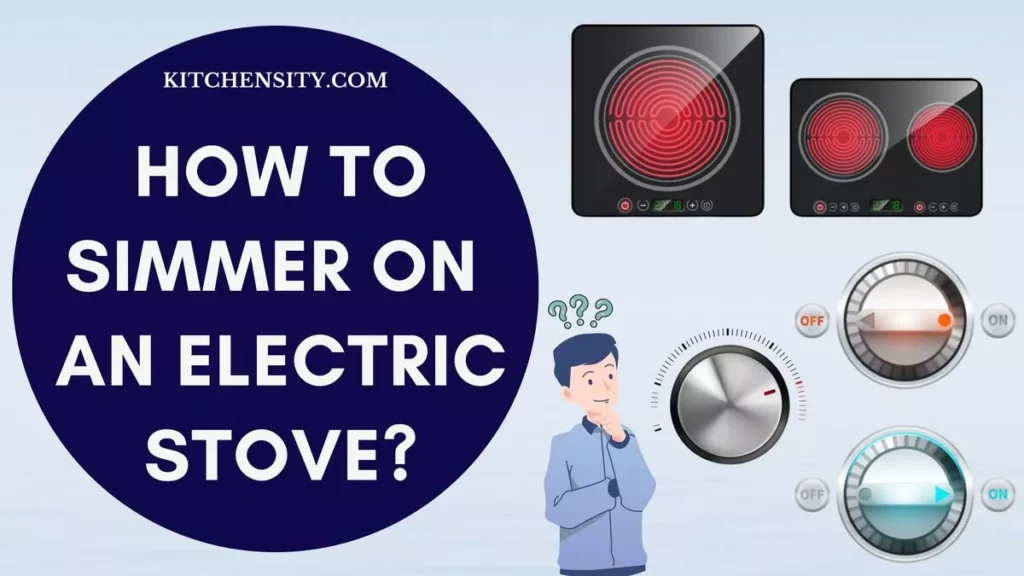
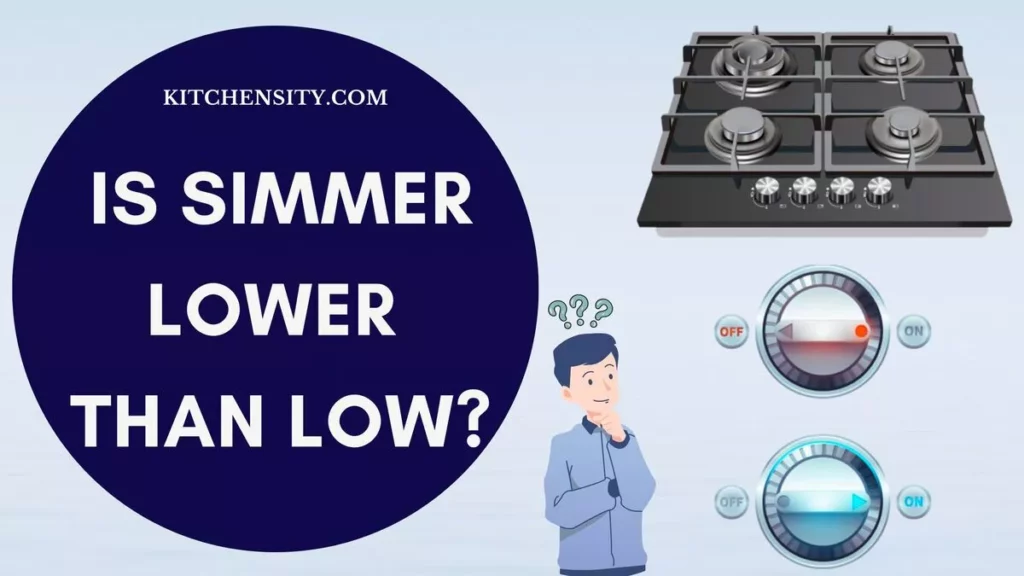

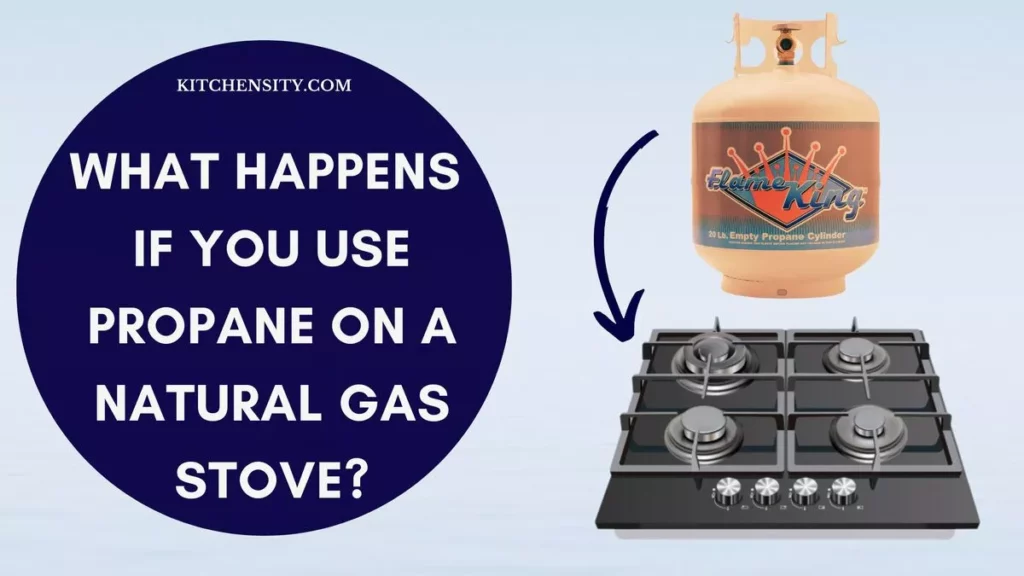
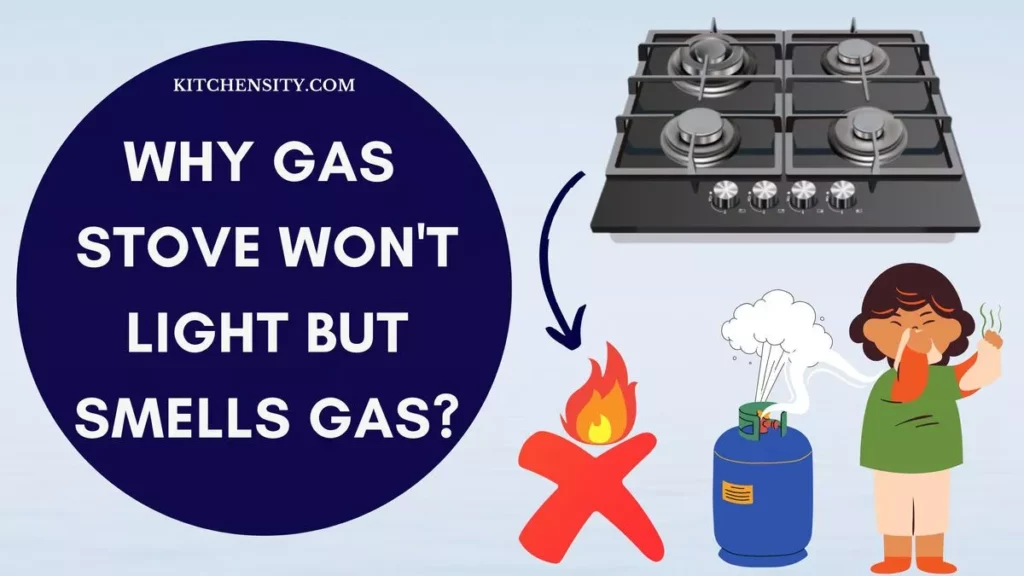
First Fuel and Propane offers delivery of propane for both residential and commercial purposes in various counties including Albany, Schenectady, Saratoga, Columbia, Dutchess, Warren, Green, Washington, Rensselaer in the state of New York, as well as Berkshire County in Massachusetts.